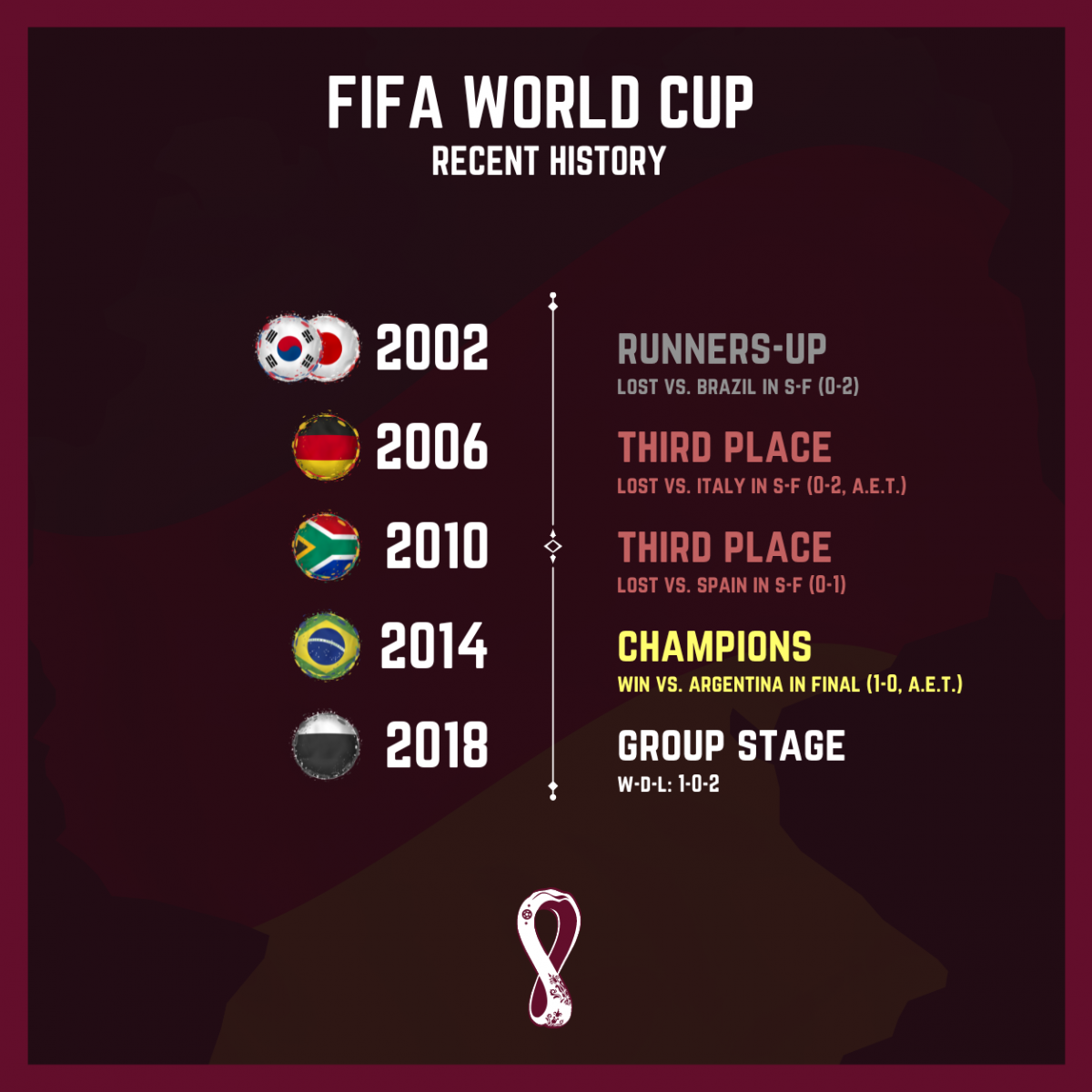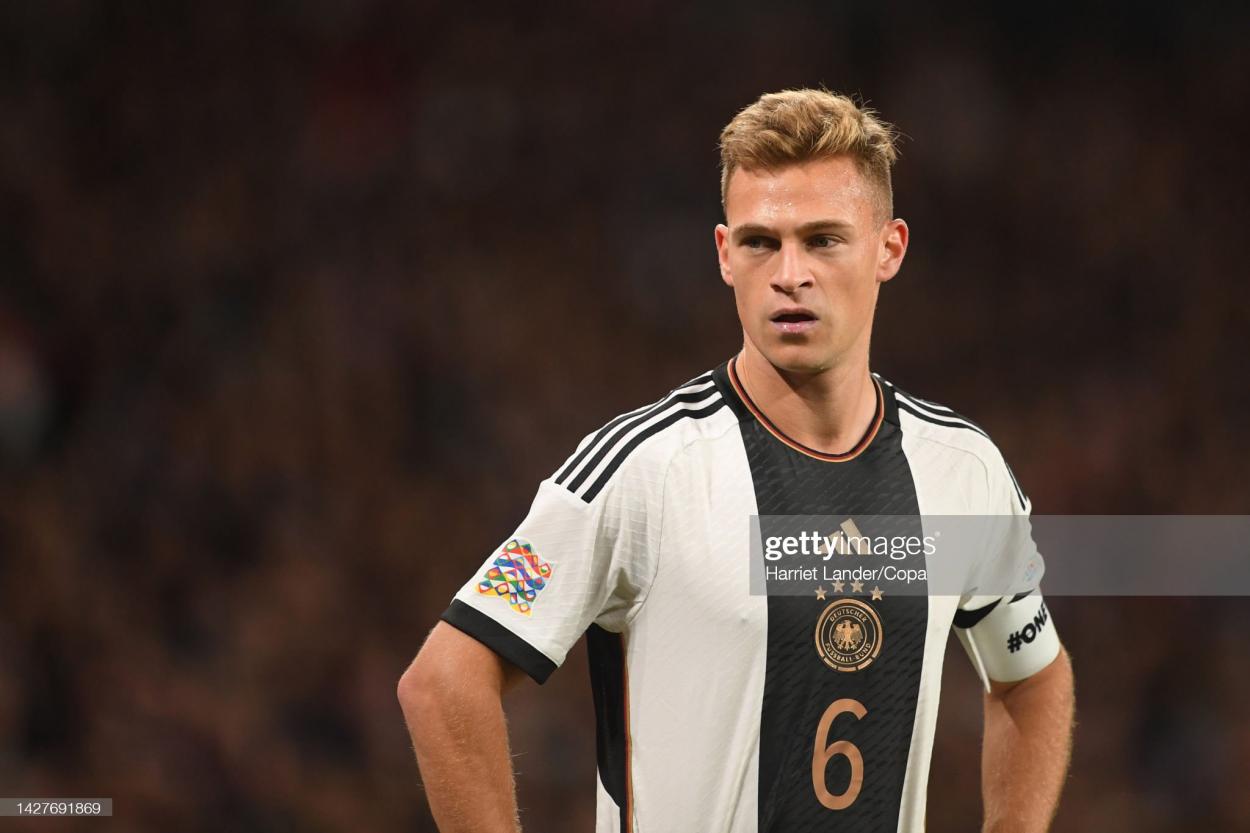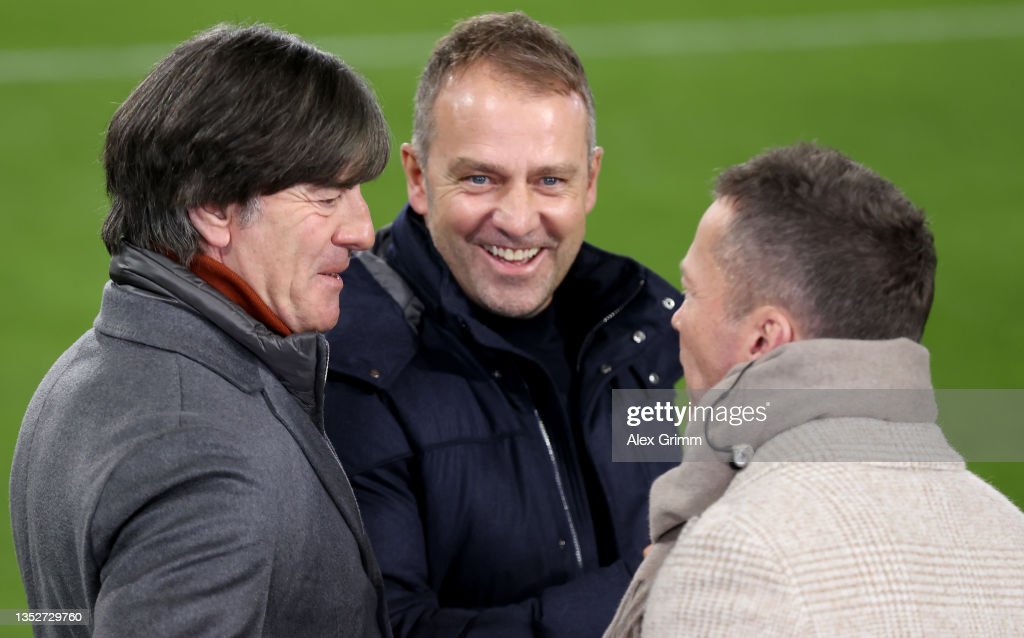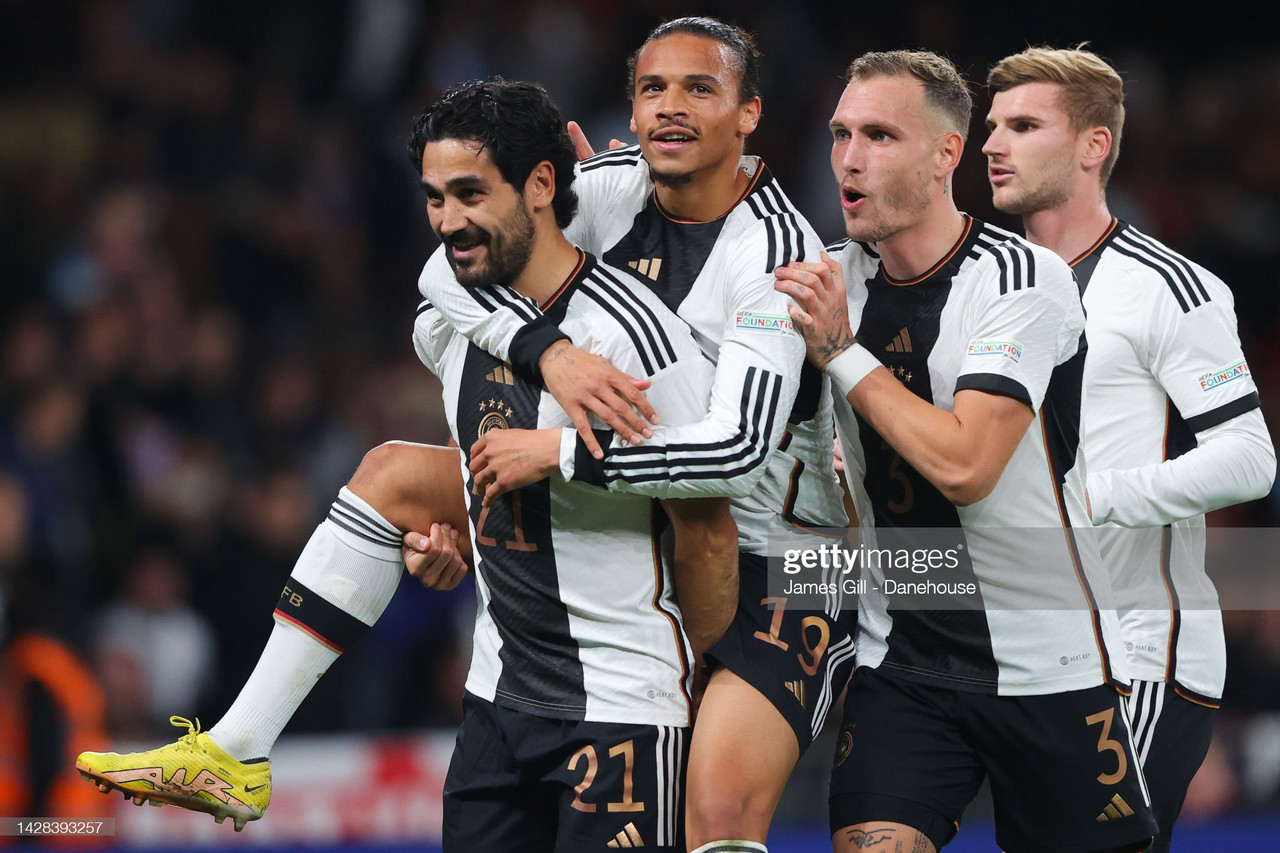For the first time since the 2006 FIFA World Cup, Die Mannschaft enter a major international tournament, without Joachim Löw at the helm of their squad.
Hansi Flick will lead Germany, after he took over the reigns from Löw, following EURO 2020.
The team will have to deal with the difficult challenge of facing Spain, in the second game of their group campaign. However, Germany should still feel confident of progression into the knockout rounds, with Japan and Costa Rica being their fellow Group E opposition.
Qualification Path
.png)
Germany have successfully qualified to the FIFA World Cup, from every qualification campaign the nation has taken part in - an ongoing streak, currently standing at 15. The nation automatically qualified for five tournaments as either hosts or defending champions, only missing out on the 1950 edition of the competition, due to being banned from entering.
Barring an early blip, in the form of Germany's shock home defeat to North Macedonia - who, themselves, ended up putting together an impressive qualifying campaign, it was another comfortable qualification journey for the four-time world champions.
Since Flick took on the job, Germany conceded just two goals from their seven qualifying fixtures. Admittedly, the European powerhouses did not face the stiffest opposition in the form of the aforementioned North Macedonia, Romania, Armenia, Iceland and Liechtenstein.

The only worrying fixture for Flick's men was the visit of Romania to Hamburg. An early Ianis Hagi goal meant that the visitors headed into the half-time break 1-0 ahead, with memories of the North Macedonia fixture creeping into the minds of some of the home support. It took the hosts until the last ten minutes of the evening kick-off to get into the lead - Thomas Muller's goal completed a comeback win.
Nine wins out of ten ensured a straightforward first place finish in Group J.
Germany's 36 goals were fairly evenly spread out, among their many attack-minded options. Serge Gnabry, Timo Werner and Ilkay Gundogan shared the team's top scorer title - all contributing with five goals each. Leroy Sane chipped in with four, Kai Havertz and Muller with three each.
Historical Performances

Germany are four-time World Cup winners - one more success away from levelling Brazil's record of five triumphs.
Their most recent title was earned at the home of the five-time champions. In 2014, on their way to winning the tournament, Germany inflicted an embarrassing defeat on the hosts, Brazil, at the semi-final stage of the tournament; a game which has gone down as one of the most famous World Cup encounters:
At a packed out Estádio Mineirão in Belo Horizonte, the expectant home crowd was stunned by Löw's Germany being at their ruthless best. Within a half hour, the Germans emphatically ended the contest, by racing into a 5-0 lead.
A couple of second half goals from Andre Schürrle put the eventual champions into an unthinkable, seven-goal lead. Oscar's late consolation dented the aesthetically pleasing scoreline and ensured that the final score stood at 7-1.
It was a much tighter contest in the eventual final, against Argentina. Mario Götze went down as the hero in the history books - his 113th minute goal was the tournament winner.
However, it was a much more disappointing 2018 campaign for the defending champions. The developing 'champions' curse' struck Germany hard, as they failed to make it past the group stage. From a seemingly fairly straightforward group, featuring Sweden, Mexico and South Korea, Löw's side only picked up a total of three points.
Germany enter Qatar, expectedly, as a team considered very capable of going all the way. Undoubtedly, they have the historical World Cup pedigree and an aim of levelling Brazil's record to pursue.
In addition to their four world titles, Germany also have three European championship wins to their name. Their most recent triumph on the continental stage came during the 1996 edition, held in England.
Player to watch - Joshua Kimmich

The versatile midfielder brings a vast amount of all-round quality into the German team - a player capable of playing a leading role in a World Cup winning team.
After joining the Bundesliga giants, Bayern Munich, in 2015, Kimmich has developed into a crucial, ever-present member of the German national team.
Occupying the holding midfield position, alongside Gundogan, Kimmich will be expected to dictate the German's play, in possession.
According to FBRef's data, Kimmich's figures for passes completed & attempted, xAssists, key & progressive passes, passes into the penalty area and final third all rank in the top 1% of all midfielders, from the top five European leagues.
The €80 million valued (Transfermarkt) Bayern man is also a very capable contributor within off-the-ball metrics - particularly impressive, given Bayern's usual domination of domestic games.
Expected Lineup
.png)
(4-2-3-1) ter Stegen; Kehrer, Sule, Rudiger, Gosens; Kimmich, Gundogan; Gnabry, Musiala, Sane; Havertz.
Biggest talking point

The national team embarks on its' first major tournament, following Löw's departure, signifying a major change for Germany.
It has been 16 years since the players and supporters have went into a tournament without their former manager at the helm.
The start to Flick's reign was very positive. As mentioned, a comfortable qualifying campaign ensured that he enjoyed a start of eight consecutive wins.
However, the results have stalled, as the level of opponents has increased. During their most recent UEFA Nations League campaign, Germany only managed one win - albeit, similarly, only one loss, form their six fixtures. Within all those games, they were unable to keep a single clean sheet.
Another negative recent development for Germany, has been the injury to Timo Werner. RB Leipzig's forward has been confirmed to be out until the new year - missing the World Cup.
Havertz and Werner were the pair who rotated for the forward spot in Flick's team, during their UNL campaign. Now, the latter's absence means that Havertz should expect a consistent starting spot, for the tournament in Qatar.
Niclas Fullkrug - enjoying great recent Bundesliga form, may be a wildcard selection to challenge Havertz and provide a more natural forward option. The Werder Bremen man is the league's currents second highest scorer, with ten goals from his 13 appearances.
Prediction
When assessing the expected tournament path of a footballing powerhouse, it is difficult to not look very deep into the knockout round permutations and potential opponents.
The thing that makes a projection difficult to put together, is the presence of fellow European giants, Spain, in Germany's group.
With both teams evenly matched to compete for first and second placed, barring any shocks from Japan and Costa Rica, it is challenging to pick the knockout round path that Germany may take on.
Following the group stage, Group E will be paired with Group F, for the Round of 16 fixtures - winners of either group would face the runners-up of the other. With the two odds-on qualifiers from Group F expected to be Belgium and Croatia.
Topping the group would, most likely, lead to a potential quarter-final meeting with Brazil. While second spot in Group E would take the runners-up into a path, where they may expect to face Portugal, at the same stage.
We predict that Germany will be narrowly pipped to top spot in Group E - Spain will top the quartet - after both teams pick up seven points, on goal difference.
This would pair Germany with Belgium, in the Round of 16. Flick's team hit form, overcoming both Belgium and Portugal, in the quarter-final, but the semi-final stage would be a step too far.
As such, Germany would have to settle for a place in the unwanted third-place playoff match.









































